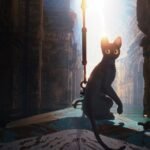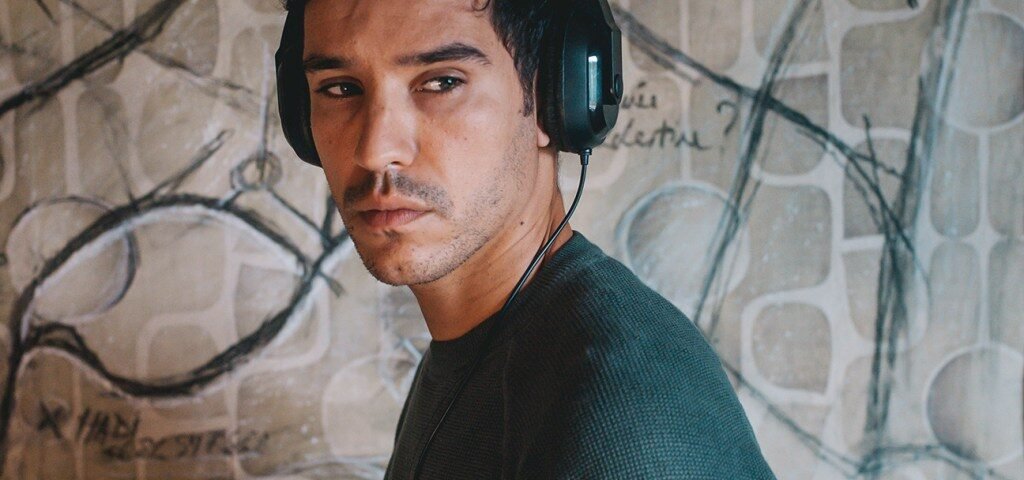


‘This Life of Mine’ Review: A Highly Personal and Darkly Amusing Chronicle of Mental Illness
May 23, 2024


‘Flow’ Review: An Enchanting Eco-Fable About Community That Makes Artisanal Magic Out of 3D Animation
May 25, 2024Premiering in Cannes’ Critics’ Week sidebar, Jonathan Millet’s film stars Adam Bessa as a Syrian refugee tasked with tracking down his former torturer.
Ghost Trail
A gripping manhunt movie that packs a stealthy wallop.
A stirring, expertly judged thriller powered by a pair of blazing performances, Ghost Trail (Les Fantômes) kicks off Cannes’ Critics’ Week sidebar in first-rate form.
Working from a screenplay (“inspired by true events”) co-written with Florence Rochat, Millet displays a shrewd grasp of paranoid-thriller mechanics: fluid camerawork, crisp cutting, propulsive music, anxiety-spiking sound design. He also has a refreshing preference for intimacy and clarity over distancing stylistic or narrative fussiness. Given how often these movies’ plot convolutions make us feel like Winona Ryder in the SAG Awards meme, Ghost Trail’s straightforwardness is a boon — evidence that the writer-director is interested in the protagonist’s experience as something more than a vessel for instant genre gratifications. One of the satisfactions of the film is indeed how it lets us focus on the story’s stakes rather than indecipherable double-crosses or unconnectable dots.
We first meet Hamid (Bessa) in 2014 as Syrian soldiers dump him in the desert, bruised and limping, along with a truckload of other men. The film then jumps forward two years, finding Hamid on a construction job in Strasbourg (northeastern France) as he approaches co-workers with a blurry photo of another Syrian he’s trying to locate.
The film sketches in the details of Hamid’s life, helping us to piece together his past and present. He lives in a sparsely appointed studio, its drab wallpaper covered with scribbled notes, where he watches news reports describing attacks by the Syrian government on its own people. Via video calls to his mother — currently in a refugee camp in Beirut — and sessions with civil servants helping him establish residency in France, we learn he was a literature professor in Aleppo and was imprisoned for political dissidence. While he was in jail, his wife and young daughter were killed in a bombing.
Hamid is now part of an underground network of Syrians trailing fugitive henchmen of the Assad regime around Europe and turning them over to local authorities to be arrested and tried. His newest target, as confirmed by his handler (Julia Franz Richter), is Sami Hanna, aka Harfaz: the very man who administered Hamid’s brutal weekly beating, as well as that of other civilian detainees, in Sednaya Prison.
Yara helps Hamid trace Harfaz (Barhom) to the local university, where he’s a graduate student in chemistry. The catch, of course, is that Hamid can’t identify his target with 100-percent certainty, because he’s never actually laid eyes on him; he was blindfolded during the beatings. Moreover, when the unit runs a background check using the name Hamid spots on Harfaz’s ID card — Hassan Al Rammah — the report points to an individual on file as an enemy of the Assad regime.
Still, Hamid feels deep in his gut that the slim, bespectacled scholar hunched over his books in the library is the monster who left him with a map of scars splayed across his back, not to mention psychological wounds that may never heal. Other members of the cell accuse him of “wishful thinking,” but Hamid is sure that the voice and even the smell of the man he’s been following belong to his torturer.
Millet knows how to crank up the tension, assisted by Yuksek’s churning electro-infused score and the deft layering of ambient campus noise — whispers in the hallway, chairs creaking, the shuffling of papers — with Hamid’s own throbbing heartbeat. The filmmaker and DP Olivier Boonjing shoot Bessa up close as Hamid spies on his suspect and listens to recordings of victim testimonies; we see the glistening of sweat on his skin and the tightening of his jaw, hear his breathing grow ragged.





